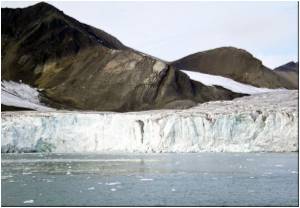Scientists have revealed that the growing atmospheric concentrations of man-made greenhouse gases are driving irreversible and dramatic changes to the way the ocean functions,

Professor Ove Hoegh-Guldberg, lead author of the report and Director of The University of Queensland's Global Change Institute, says the findings have enormous implications for mankind, particularly if the trend continues.
He said that the Earth's ocean, which produces half of the oxygen we breathe and absorbs 30 percent of human-generated CO2, is equivalent to its heart and lungs.
"Quite plainly, the Earth cannot do without its ocean. This study, however, shows worrying signs of ill health. It's as if the Earth has been smoking two packs of cigarettes a day!"
He went on to say, "We are entering a period in which the very ocean services upon which humanity depends are undergoing massive change and in some cases beginning to fail", says Prof. Hoegh-Guldberg. "Further degradation will continue to create enormous challenges and costs for societies worldwide."
He warned that we may soon see "sudden, unexpected changes that have serious ramifications for the overall well-being of humans," including the capacity of the planet to support people. "This is further evidence that we are well on the way to the next great extinction event."
Advertisement
These are driving major changes in marine ecosystems: less abundant coral reefs, sea grasses and mangroves (important fish nurseries); fewer, smaller fish; a breakdown in food chains; changes in the distribution of marine life; and more frequent diseases and pests among marine organisms.
Advertisement
"This is causing fundamental and comprehensive changes to the way marine ecosystems function. We are becoming increasingly certain that the world's marine ecosystems are approaching tipping points. These tipping points are where change accelerates and causes unrelated impacts on other systems, the results of which we really have no power or model to foresee," Dr Bruno said.
The authors conclude: "These challenges underscore the urgency with which world leaders must act to limit further growth of greenhouse gases and thereby reduce the risk of these events occurring. Ignoring the science is not an option."
The study has been published in Science magazine.
Source-ANI










